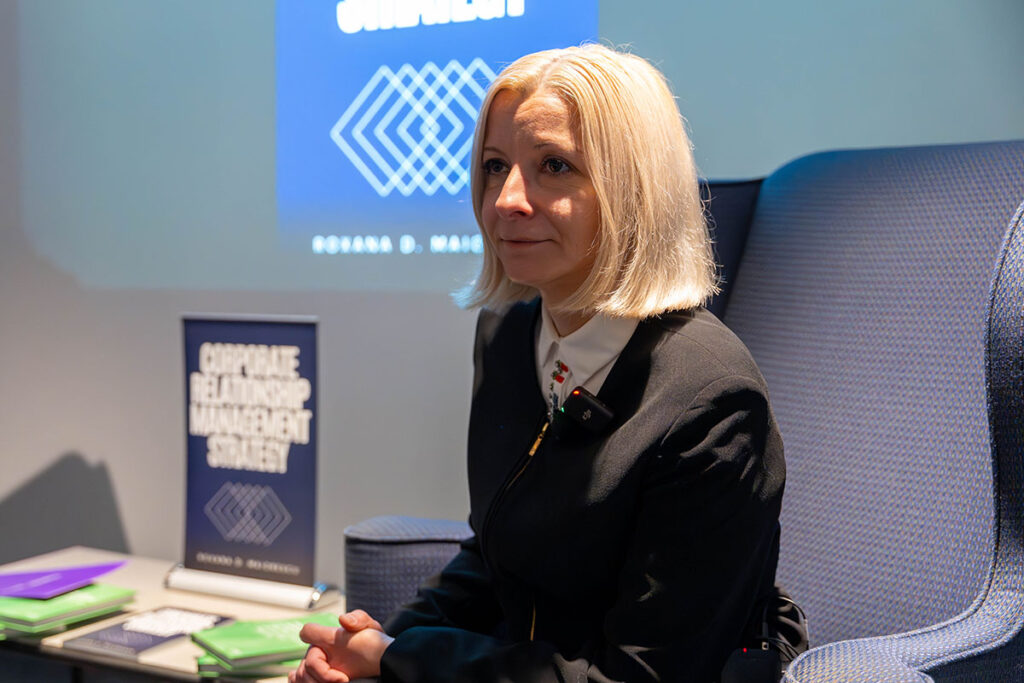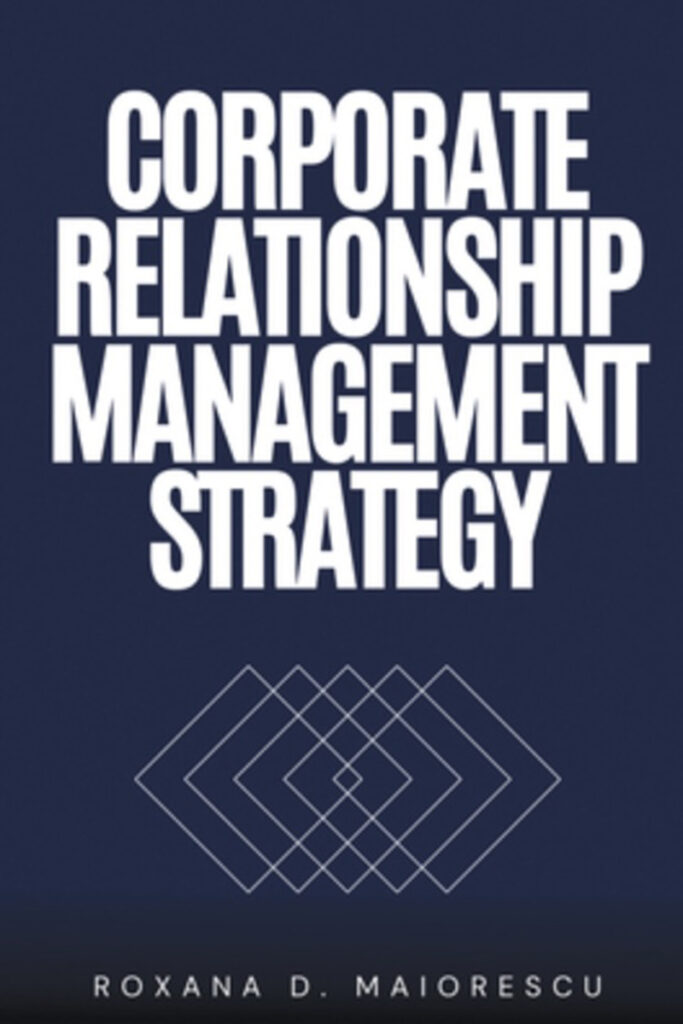5 Things to Know About Corporate Values and Relationship Management

By Melissa Russell
In a divisive age when trust is at a premium, Marketing Communication Professor Roxana D. Maiorescu has served a reminder to corporate leaders to focus on building deeper connections with employees, consumers, and society at large, because strong relationships lead to healthy companies.

In her new book, Corporate Relationship Management Strategy, Maiorescu discusses the importance of embedding corporate values in every practice, building and maintaining relationships, and the role that leadership styles play in relationship management — topics she addressed in a recent talk moderated by Dr. Gregory Payne, Chair of Communication Studies and co-director of the Emerson Blanquerna Global Center.
Here are five things to know about how effective leaders align corporate values with relationship management:
Build trust through communication
Maiorescu says when it comes to developing trust with employees, fostering an environment of open, authentic communication is the key. Genuinely considering employees’ perspectives in decision-making will help them feel valued.
“You obviously cannot take everyone’s perspectives into account if you have 60,000 employees, but you can conduct a survey. You can draw conclusions and be in constant communication with your employees to tell them how their insights influenced your decision making. That helps employees feel valuable and leads to higher identification with the company,” she said.
Using social media platforms can help leaders remain engaged and connected with employees. Research shows leaders do not have to engage in face-to-face communication with employees to trigger loyalty for the company.
“Every leader is extremely busy…but a leader can take 30 minutes throughout the week to respond to a post online or respond to a direct email. It just builds upon an already established identification with the company,” she said.

Embed values in recruitment
Loyalty begins even before an employee joins an organization. Maiorescu said she frequently advises students to check a company’s mission statement before applying to see if their personal values align with what the company claims to support.
“That triggers identification to a certain degree. If you get a job at a company that you really don’t believe in, it will be very hard,” she said.
For leaders, recruiting employees whose personal values converge with the corporate mission helps build a workforce that identifies with and supports company values.
“Transparency upfront will allow candidates to make informed decisions about whether the company culture is a good fit for them,” she said.
Use storytelling to communicate corporate values and build brand loyalty
Storytelling helps bring corporate history and purpose to life and makes values relatable and meaningful for employees, stakeholders, and customers, Maiorescu said. Telling the origin story of the founders or other role models humanizes the company and can build stronger, more authentic relationships.
During the Covid-19 pandemic, Maiorescu said, Ford Motor Company put production of vehicles on hold to produce desperately needed ventilators, an act consistent with the history of the company.
Balance profit with community engagement
“In the 1940s [Ford] put the production of vehicles on hold to deliver incubators, and again in 1941 to help America fight against polio, [with] the iron lung,” she said.
Having a positive impact on society builds brand loyalty, Maiorescu said, by balancing the pursuit of profits with commitment to the communities in which they operate in meaningful, authentic ways.
Companies can successfully support community programs through grants, scholarships, and other initiatives that align with their values. For example, engineers at Mercedes-Benz, have spoken to kindergartners at schools worldwide to inspire children to pursue engineering careers.
“Every company can have a mission statement in which they argue that they help the community, but actions are what counts,” she said.
While many corporations that embrace activism get criticized for being insincere or for pandering to customers, Maiorescu said research shows that for corporations to be successful, they have to embrace causes that align with their values.
She cites the outdoor clothing company Patagonia as an example. “Students love Patagonia! Patagonia is all about environmentalism. In addition to providing very high-quality products, they work with environmental activists around the world; it is something they deeply believe in. The company was founded 50 years ago out of a concern for the environment. To date, environmentalism represents its core value.”

Consult employees in a crisis
Maintaining open, transparent communication with employees is crucial in times of crisis, and a successful leader actively engages with and solicits employee perspectives to find the best solutions, Maiorescu said.
Employees, stakeholders, and society are more likely to support leadership they identify with, and leaders who have fostered a culture of trust and values will more likely be able to navigate crises effectively and maintain loyalty and support, she added.
She cites General Motors’ leadership during a 2014 ignition switch recall as an example of how to flourish in the aftermath of a crisis. Then-newly-appointed CEO Mary Barra had worked across several departments at GM, developing relationships throughout the company. She asked for feedback from her colleagues when the company addressed the crisis and encouraged them to email her directly.
“Given her leadership style, the employees’ identification with GM increased. They identified with the company more through the leader in addition to the convergence of values,” Maiorescu said.
Maiorescu said she believes in the effective and kind leadership that undergirds corporate life, and that should be a story that is more frequently told. She mentioned Microsoft’s CEO Satya Nadella, whose commitment to special needs children led to the development of cutting-edge learning software.
“The media nowadays is so negative about corporations, but we have great companies in the U.S. and around the world. We have leaders who care,” she said.
Categories